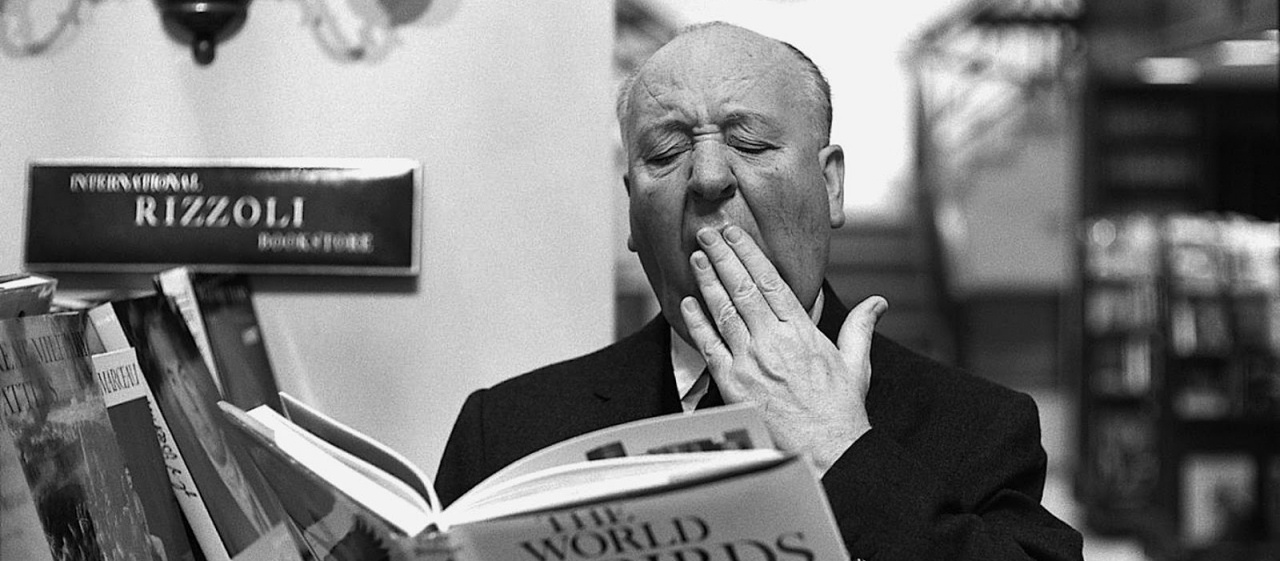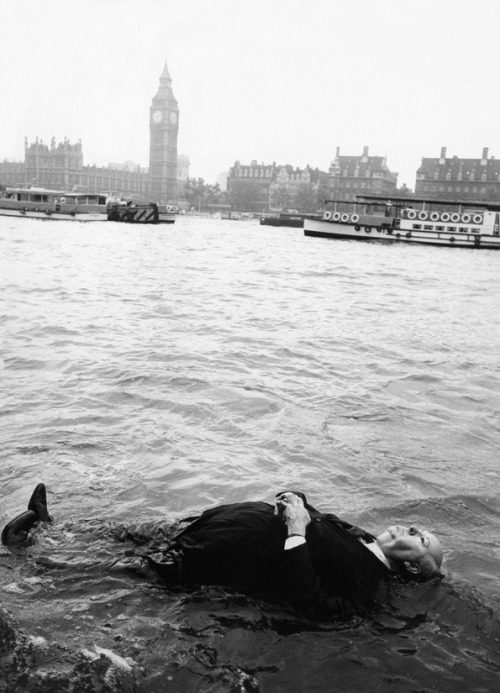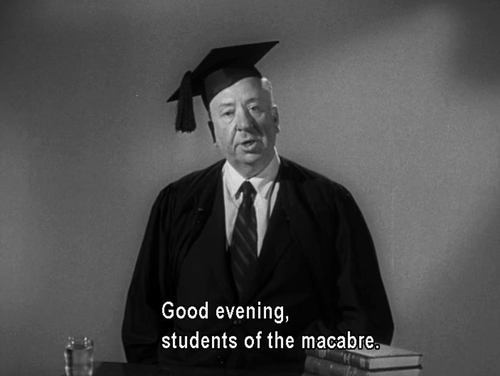Quantos
livros já foram escritos sobre Alfred Hitchcock, o mestre do suspense? Uma
busca rápida no site Goodreads nos dá mais de 2600 resultados – mais de 2600
livros escritos sobre ou levando a marca de Hitchcock. O fino livro de Bill
Krohn pode ser só mais um neste vasto universo, mas é muito interessante, e um
bom ponto de partida para os novatos.
How many books have been written about Alfred
Hitchcock, the Master of Suspense? A quick search at Goodread finds more than
2600 results – more than 2600 books written about or carrying the Hitchcock
brand. Bill Krohn's thin book may be only another in this vast universe, but it
is a very interesting one, and a good starting point for newbies.
Sim,
este é um livro pequenino – menos de 100 páginas, e com muitas imagens – mas
cobre todos os filmes que Hitchcock fez. Ah, sim, há apenas uma linha sobre “Um
casal do barulho” (1941), mas todos os filmes são mencionados em um ótimo guia
com especificações técnicas e uma breve sinopse de cada um. Ao longo do livro,
todos os livros são discutidos em ordem cronológica, alguns com grandes
spoilers – como “Um corpo que cai” (1958) – e alguns com observações pessoais
do autor que, por falar nisso, odiou “Os Pássaros” (1963).
Yes, this is a very tiny book – less than 100 pages,
and a lot of images – but it covers all films Hithcock did. Oh, yes, there is
only one line about “Mr and Mrs Smith” (1941), but all the movies are mentioned
in a nice guide presenting the technical data and a brief summary of each film.
Througout the book, all films are discussed chronologically, some with major
spoilers – like “Vertigo” (1958) – and some with a lot of personal input by the
author who, by the way, hated “The Birds” (1963).
As
informações sobre os filmes não apresentam surpresas. Nós encontramos fatos
reveladores nas histórias de bastidores e nos ensaios espalhados pelo livro. Eu
particularmente gosto do 'motif', do tema constante que o autor escolhe:
comparar Hitchcock e DeMille. Hitchcock foi muito influenciado por outros
mestres, mas a conexão com DeMille não é a primeira em que pensamos quando suas
influências são discutidas. Porém, o livro nos lembra de que o tempo todo,
talvez de maneira inconsciente, DeMille estava lá. Da mesma maneira, Fritz Lang
também estava lá influenciando Hitchcock, mas o próprio Hitch era reticente ao
falar do que apreendeu de Lang. O autor se refere à estranha relação de Hitch
com seus 'pais cinematográficos' como 'ansiedade / fobia de influência'.
But the films themselves don't present any surprise.
We find eye-opening facts in the backstage stories and the essays disposed here
and there. I particularly like the 'motif', the constant theme that the author
has of comparing Hitchcock and DeMille. Hitchcock was heavily influenced by
other masters, but the connection with DeMille is not the first we think about
when his influences are discussed. But the book reminds us that all the time,
maybe in an unconscious way, DeMille is there. The same way, Fritz Lang was also
there influencing Hitchcock, but Hitch himself was reticent when talking about
what he got from Lang. The author refers to Hitch's odd relationship with his
'cinematic fathers' as 'anxiety of influence'.
Ao
seguir esta linha de influências, o autor escreve o livro como quem escreve uma
tese – provando suas hipóteses sempre que tem chance. Não estou reclamando,
porque esta é uma hipótese muito interessante! Também há muitas notas ao final
do livro, que vão mencionar outros trabalhos e podem ser o primeiro passo para
estudarmos Hitchcock melhor. O único problema que eu tive foi com a comparação
do autor com Hitchcock 'originando o vocabulário do horror' com “Psicose”
(1960) com Griffith 'originando o vocabulário cinematográfico' em “O Nascimento
de uma Nação” (1915). Todos nós – e Fritzi do site Movies, Silently em
particular – sabemos que Griffith não foi pioneiro com as técnicas que usou em
seu pequeno filme racista.
In following this line of influences, the author
writes the book as someone writes a thesis – by proving his hypothesis every
time he has a chance to do so. I'm not complaining, because it is a very
interesting hypothesis! Also, there are lots of notes in the book, that
reference other works and may be the first step for us to study Hitchcock further.
The only problem I had was with the author's comparison of Hitchcock 'giving
birth of horror vocabulary' in “Psycho” (1960) with Griffith 'giving birth to
the cinematic vocabulary' in “The Birth of a Nation” (1915). We all – and
Fritzi from Movies, Silently in particular – know that Griffith was no pioneer
with the techniques he used in that little racist movie.
Além
das comparações com outros cineastas, o livro apresenta paralelos dos filmes de
Hitchcock com outros trabalhos literários, mitos e teorias filosóficas. Estes
momentos tornam o livro mais rico e demonstram o vasto conhecimento do autor.
Besides the comparisons with other filmmakers, the
book presents a lot of parallels of Hitchcock's movies with other literary
works, myths and philosophical theories. These moments make the book richer and
show the vast knowledge of its author.
A série
de livros 'Masters of Cinema' foi publicada pela Cahiers du Cinéma, e eu
comprei a versão em inglês. Eu também tenho um livro deles sobre Stanley
Kubrick, e sei que a coleção também tratou dos trabalhos de Kurosawa, Billy
Wilder, Scorsese, Spielberg e Woody Allen. Eu recomendo muito este livro não
como uma grande aula sobre Hitchcock, mas como o primeiro passo em uma aventura
cheia de suspense na qual descobriremos mais sobre sua obra.
The 'Masters of Cinema' series was published by the
Cahiers du Cinéma, and my copy was in English. I also own their book about
Stanley Kubrick, and I know that the collection also dealt with the works of
Kurosawa, Billy Wilder, Scorsese, Spielberg and Woody Allen. I highly recommend
this book not as a masterclass on Hitchcock, but as the first step in a
suspenseful adventure discovering more about his work.
This is my contribution to the Alfred Hitchcock blogathon, hosted by Maddy Loves Her Classic Films.
This book is part of Raquel's 2017 Summer Reading Classic Film Book Challenge.







Thanks so much for taking part, Le. This book sounds well worth a read, I shall keep an eye out for it. Maddy
ReplyDeleteI knew there were a lot of Hitchcock books out there but I didn't know there were that many! Great review Le. Thanks for participating in my challenge. Also just to add you found some great photos of Hitchcock. I particularly love that one of him in the water. Too funny.
ReplyDeleteVery insightful post. It looks like a superb book to delve into, though I do not think I can bear anyone who hates "The Birds" (1963) :)
ReplyDeleteThis sounds like a great book, whether you're familiar with Hitchcock or new to his films. (I love the book's cover.)
ReplyDelete2600 results on Goodreads?! I figured there would be many, but I wouldn't have guessed more than 200-300. That just shows the lasting impact his films continue to have.
So he didn't like "The Birds"? I was surprised to read that. Well, I suppose not every film can be a favourite, no?
Wow, very interesting, Le! I never would have thought of connecting DeMille with Hitchcock--they seem so different. I'll have to look for this book on Amazon. :-)
ReplyDelete2600 books!!!
ReplyDeleteThis looks like a very interesting read. I particularly like short books in the same way I like short films, in that I can get the information and story quickly.
I might have to give this a look on Amazon!
Great review Keep me posted when you read the Kubrick one- Gill from Realweegiemidget Reviews
ReplyDelete